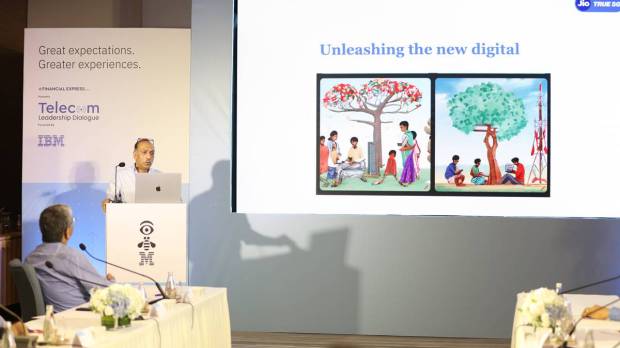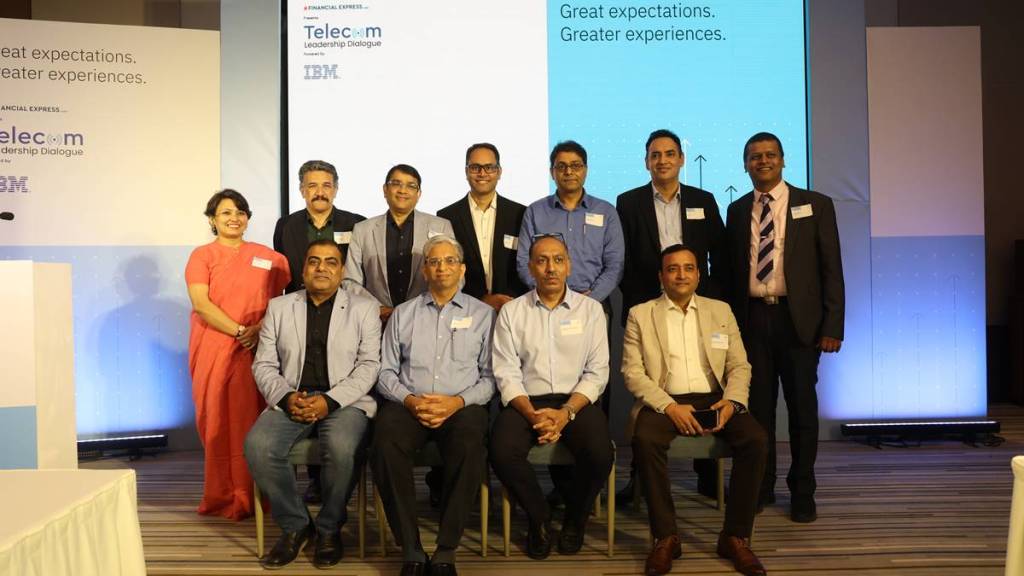AI and generative technologies have been creating significant waves in the technology world, transforming various industries and opening up new possibilities. These technologies leverage the power of machine learning and deep learning algorithms to generate content, simulate scenarios, and solve complex problems. While these technologies are surely disruptive, if incorporated in the business chain, would totally revolutionise the business processes and change the way customer interaction happens. The telecom industry is at the forefront of starting to utilize and develop these technologies in their processes, systems, and customer interface, which would not only lead to better quality of services but would also benefit the entire ecosystem.
AI and generative technologies are driving advancements in natural language processing and human-computer interaction. Chatbots and virtual assistants are becoming more sophisticated, capable of understanding and responding to human language with greater accuracy. AI is also seen as a platform that can harness the potential of 5G. While 5G brings in lower latency and higher access speeds, AI plays a role in enabling the transition and helping the telecom industry optimise the use of technology. At the recent Telecom Leadership Dialogue, organised by FinancialExpress.com and powered by IBM, senior leaders from telecom companies of the country Reliance Jio and Airtel, as well as tech leaders from IBM deliberated on how AI not only helps in enhancing efficiencies but also offers scale, reach and reduced costs.
Shyam Prabhakar Mardikar, President, Group CTO, Reliance Jio asserts “At telecom we measure the penetration of telecom usage in a term called tele-density, which is the number of telephones per 100 population in most of the developed countries. Telecom connected the country in one decade end to end. Almost everybody connected from villages to towns, cities to metros. Only difference was this connection predominantly was for voice because as a country we have not seen smartphones, not seen any data. In 2010, the famous 3G and 4G auctions happened. 2011 to 2020 was a decade of video and we have actually beaten every country in the globe, hands down in this decade. An average Indian was consuming almost 1 GB a day and the same average Indian in 2015 was consuming 150 MB a month. Speed moved 1000x, from kbps speed we moved to mbps speed. Every 10 years we are moving 1000 times faster. Phones are now an integral part of human anatomy. Gen Z is totally native to digital, everything they do is a screen for them. Unless you are digital you are out of the race. 5G assures not only better connectivity but also better space and storage.”
Harish Pani, Managing Client Partner, Telecom, India and South Asia, IBM Consulting set the context of the conversation by bringing to the fore how we see AI and its growing influence in the telecom industry, “Usage of AI, be it in the acquisition process or customer experiences or even fraud management, brings in a varied experience. Proof of concept is gaining momentum, telecom is virtually across all industries. Connectivity is bringing in a big difference across manufacturing units and supply chains. AI is helping optimise the experience and enabling companies to stay ahead of the curve.”

Sanjeev Chaube, EVP- Big Data & Advanced Analytics, Vodafone India underlines on “how do we benefit, how do we use AI and these technologies to basically improve the customer experience as well as business transformation or business value generation. There are two perspectives – customer experience and business value that we generate. We use AI extensively for different models, different cases around all these intents that we drive today – revenue, cost reduction, operational efficiency and data monetisation.”
It is no secret that people are looking at outcome-based models and in the context of the telecom industry, AI is seen as a primary enabler of efficient customer experiences. Essentially, the telecom industry is moving several notches higher from the current deployment of chatbots to a more refined user experience and operating platform with the use of AI.
Raghuram Velega, Vice President – Head Big Data and Analytics, Reliance Jio highlighted that “AI enables telecom companies to extract key nuggets of information from the huge pool of data that is being recorded every second. Data is the driver and AI enables effective utilisation of this data.”
He cited several use cases including IPL cricket matches and explained in a step-by-step manner how relevant information is culled out from the huge database. Needless to mention that AI plays a key role in mining this information.
Utkarsh Dubey, Chief Technology Officer, Bharti Airtel corroborated the point and added that “5G is a key driver for boosting connectivity and removing latency. With AI, this experience is going to get better, it will reduce the overall time required to give an adequate customer experience. It has also helped improve operations significantly.”
Overall AI is playing a key role in enabling quicker customer service through intuitive self-service menus, refined chatbot platforms and natural language processing.
Jignesh Karia, CTO-Telecom Cloud, India and South Asia at IBM pointed out that, “AI is going to help harness the true potential of 5G. The telecom sector can now extract useful business data and improve overall customer experience thanks to AI. Among other things, AI is used in the telecom sector for predictive maintenance, network optimisation, anomaly detection, robotic process automation (RPA), and fraud detection. Data privacy is essential, and AI once more assists in enabling systems to recognise a violation. Creating the appropriate knowledge is essential, despite the ongoing development of technology.”
Various studies indicate that AI in the global telecommunications industry was worth about $1.2 billion of production in 2021. It is estimated to touch $38.8 billion by 2031, which translates to a compounded annual growth rate (CAGR) of 41.4% between 2022 to 2031. This kind of growth is estimated on the basis of growth in customer base between now and 2030. Given the increased need for connectivity and a shortage of skilled labour coupled with pandemic-related changes across the industry, AI provides the perfect platform to cater to the evolving requirements across the telecom industry.
Nilesh Mahajan, Vice President, Jio Platforms said, “The learning kind of compounds with the growing use of AI within the system. Automation helps in compounding the learning and enhances experience. As it is said in 150 years, whatever is invented will be reinvented in the next 15 years again using AI. That’s the kind of growth we are going to see.”
In fact, as the speakers explained, AI and machine learning (ML) can eliminate the need for guesswork and a host of manual processes across the industry. Additionally, AI and data analytics can guide telecom leaders in deciding what areas to focus on.
For instance, how does one accurately assess demand in the current dynamic situation? Shailesh Kumar, Chief Data Scientist, Reliance Jio explained the rules of the game are changing. “Supply creates demand. This is an era of complexity across industries. We have hundreds and thousands of towers to deal with and a huge number of devices, customers, and locations. Dealing with all this complexity is a new challenge. The move, as a result, is from automation to intelligence to integration.”
Kumar added, “That’s the primary innovation. A telecom network is an example of an integrated ecosystem. It enables personalised information at scale. This is what can be unleashed across industries using AI on telecom. The next 20 years are going to be more exciting than the last 2 decades.”
However, despite the growing adoption of AI across the telecom industry, there are still many challenges. Dr Sudhir Kumar Mittal, Chief Architect, Bharti Airtel outlined, “There are multiple challenges in terms of growth, reach, and customer churn. The spectrum is pretty wide and that’s the opportunity and the potential use cases for incorporating AI. AI can enable steering customers toward better use cases and address their concerns wherever possible. Also as customer experience improves, revenue also improves.”
Another factor that can add to revenue for telecom companies is the scale that AI enables. Improving efficiencies of time and cost, AI can also reduce the time required to generate scale. Amit Alavadi, Client Partner – Communications Sector, India and South Asia, IBM Consulting says: We see that a lot of data is getting generated and so far we were doing data processing at centralise data centres. With 5G , edge computing will start getting prominence. 5G & Edge will help manage data at scale, enable capabilities to analyse data in real time and cut down the time required for data analysis. One such use case that we see is Predictive insights for proactive and pre-emptive troubleshooting. Clearly, 5G and AI are two essential ingredients that will fuel future innovation with improved performance, and greater levels of personalization.

However, data privacy is also a concern area with increasing personalisation of services for customers. Shyam Prabhakar Mardikar, President, Group CTO, Reliance Jio said, “Data privacy is one of the most important things. I think in India, rules are being mulled on similar lines as in the West. The point is if my data is being used in some way, whether direct or indirect, I would like to give some consent in some way. The agency and the degree of trust with them are also important when dealing with data. The ability to monetise is another key area of focus while looking at how AI can enhance telecom services. Close-looping of the value chain is most important and trust and integrity are primary channels taking it forward. Given the potential, sooner than later, we see AI becoming an integral part.”
All the panelists at the Telecom Leadership Dialogue were unanimous in identifying platformisation and integration as the critical links that would help optimise AI’s growing influence across the telecom industry. The tagline ‘AI will change your life forever’ applies truly to the telecom industry. From optimising network traffic, to providing seamless customer experiences and optimising downtime, AI is a harbinger of change across the telecom industry, with most telecom companies experimenting with it in various stages of deployment.

